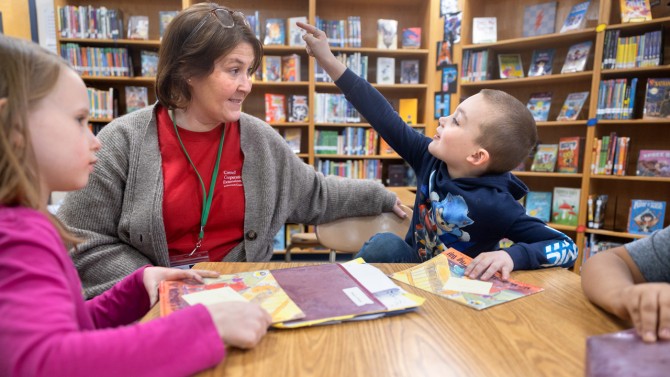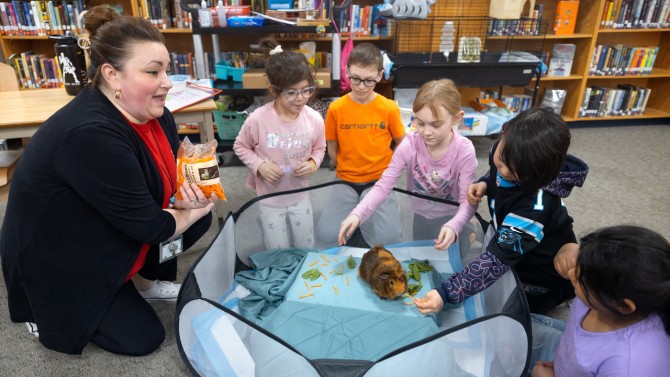Kari Lehman isn't sure what she'd do without the 4-H afterschool program at Beaver River School in Beaver Falls, New York.
Her two boys, aged 7 and 11, get help every day with their homework, connection to peers and adults in the school and broader community, and enrichment activities that light them up - and it's all provided at no cost, during hours when she and her husband, who both work full-time, couldn't otherwise provide care.
The 4-H programs support students' academic success and social and emotional well-being.
"They're getting their homework done, they're getting a snack, they're moving their bodies, they're getting to socialize," Lehman said. "And then our nights are free so we can have dinner together and spend time as a family. It would actually change our lives, our family, if we didn't have this program."
Run by Cornell Cooperative Extension (CCE) Jefferson County, the program at Beaver River is just one of 18 4-H afterschool programs at schools across Jefferson and Lewis counties, enrolling more than 1,200 students. Currently funded through state and federal grants awarded to CCE, the programs support students' academic success and social and emotional well-being while building bridges between families, schools and communities.
Each afternoon, an hour is spent on academics - with one-on-one tutoring available, often from school-day teachers, "teacher tutors," employed by CCE. The second hour is spent on enrichment that aligns with 4-H principles and aims, with a focus on STEM fields, health and wellness, career exploration, and social and emotional development, including learning to be resilient and nurturing a positive self-image and self-worth.
Katie Steel, 4-H afterschool program educator at Beaver River Central School, helps students prepare the program guinea pig for a school fair.
Last year, between 60% and 80% of students participating in the programs improved their math and English language arts grades, and close to 100% of parents reported satisfaction. In the Watertown City School District, one of the largest in the county, teachers reported that more than 80% of students increased their commitment to school and more than 90% of students improved academically. In one survey of the parents of more than 700 students, 93% of parents said their children demonstrated overall well-being because of their participation in the programs.
"We've had tremendous results with our afterschool programs," said Stephanie Graf, deputy executive director of CCE Jefferson County, who has been building and expanding the programs since 2006. "Students are doing better academically, their attendance is improving and so is their behavior in school."
"I can't imagine a greater resource for our families, one that really levels the playing field and gives an opportunity for all students to be able to participate," said Sarah Matteson, assistant superintendent for curriculum and instruction in the Indian River Central School District (IRCSD). "I can't say enough about our partnership with Cornell - they are advocating for kids in the best way possible, and we need it to continue."
Filling gaps, extending learning
The programs fill a particular need in Jefferson County: Many areas of the county are designated as childcare deserts, and the schools serve a large number of military families with connections to Fort Drum, a U.S. Army installation - 55% of youth in IRCSD currently come from military families, and in the past, military youth have comprised up to 70% of the district.
Kathryn Mogray, the director of CCE Jefferson County's 4-H afterschool programs, said the programs help students from military families, who may be coming from other states, align with New York's academic standards. The programs fill a gap in academic support more broadly, as well, especially in the face of learning delays due to the COVID-19 pandemic and school budget cuts that have reduced support staff.








